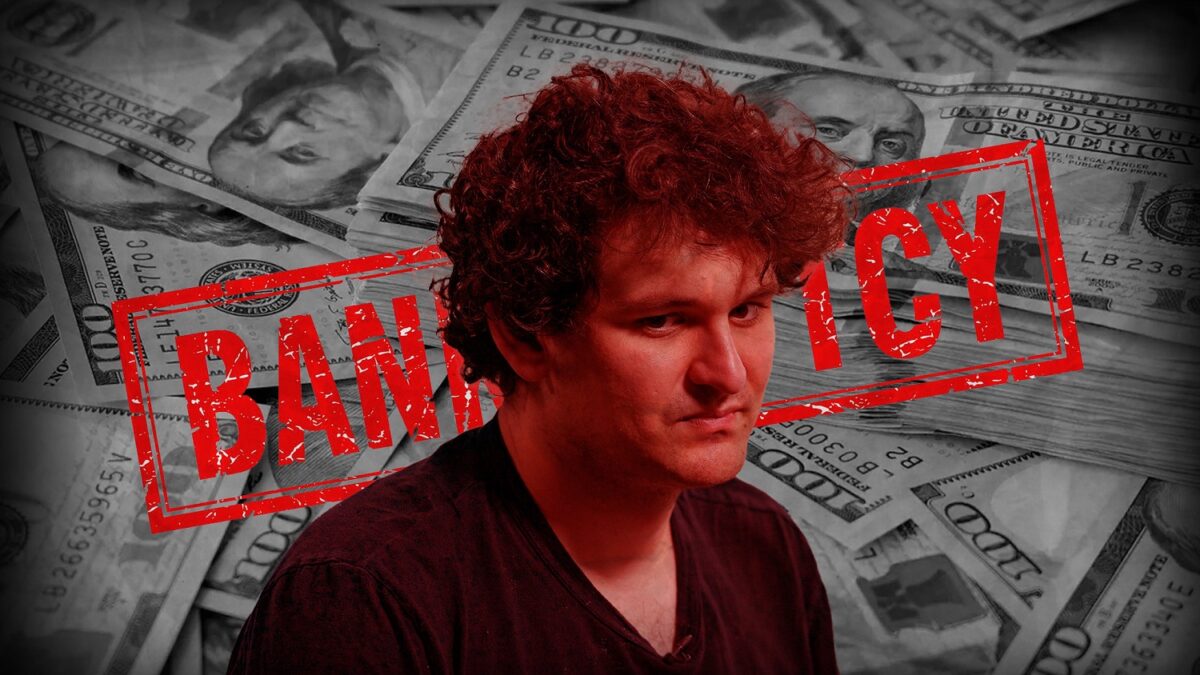Theo Von joked on “The Joe Rogan Experience” that billionaires “look like aliens.” Their bodies are often funnily shaped and pale from lack of sunlight. They don’t seem quite like us.
We joke that Meta CEO Mark Zuckerburg is a lizard, X CEO Elon Musk is a Martian who’s just trying to get back home, and former FTX CEO Sam Bankman-Fried is a robot.
Rogan wondered aloud whether this is the next stage of our evolution: technical brilliance and social incompetence. Could Musk do all he does and have room for normal human emotions? The danger, as Bankman-Fried shows, is that some aliens aren’t friendly.
Awkward and Brilliant
New biographies of Musk and Bankman-Fried, Elon Musk and Going Infinite, include passages where the protagonists must consciously learn what comes naturally to most children. Bankman-Fried had to teach himself to “smile when I’m supposed to smile.” He started saying, “Yup” and “Awesome,” regardless of whether he agreed with what was being said because people like affirmation. Musk only learned by reading books that people don’t always say exactly what they mean. They acquired the skills of making eye contact and expressing themselves through vocal intonation.
Both men preferred the order of STEM, and they both rejected traditional religious answers to life’s biggest questions. Yet their proximity to religion as children shaped their moral intuitions as adults.
‘I Didn’t Think Anyone Actually Believed in God’
Bankman-Fried’s parents weren’t much for traditions. They didn’t celebrate birthdays. They had celebrated Hanukkah until they forgot one year. No one seemed to mind, so they didn’t bring it back. When SBF was 10 years old, he found out that his classmate Henry actually believed in God. To that point, cozy in his Berkeley bubble, Bankman-Fried had assumed God was like Santa: a delusional belief of some children but not any real grown-ups. As author Michael Lewis frames it, SBF learned that “the world could be completely wrong about something, and he could be completely right.”
He embraced his parents’ utilitarianism, which naturally led him to Effective Altruism, a philosophy that encourages earning vast sums and then giving the money away to the most efficient charities. SBF eventually got involved with a subset of EA called longtermism, which focuses on existential threats to humanity’s future, like an asteroid strike or rogue AI. The thinking behind the idea is that saving all of posterity is more important than saving one child in Africa today.
Charity Without God’s Moral Law
The result is a philosophy without God, which he thought silly, or emotion, which he found confusing. Instead, he turned morality into a technocratic game. Actual humans remain at a comfortable distance as does any compunction about self-discipline or virtue. Personal vices and acts of kindness are negligible when weighed against the fate of humanity.
The game is simple and easily scored: make the most, give the best. Loving your neighbor is a rounding error in this calculus. He considered art, religion, and books a waste of time, fit for people lost in delusion and subjectivity and outside his clean, objective worldview. To his mind, any book “should have been a six-paragraph blog post.”
Christian Upbringing and Early Skepticism
By contrast, author Walter Isaacson tells how Musk’s mother took him to Sunday school in South Africa at the local Anglican Church. She taught there, and he would push back on the Bible stories she shared. Miracles baffled him. “What do you mean, the waters parted?” he asked. “That’s not possible.”
He was baptized and began receiving communion. But he found communion weird, too. He thought, “Is this [body and blood of Christ] a weird metaphor for cannibalism?” He started staying home and reading on Sunday mornings instead.
His dad, though an abusive and erratic man, challenged Musk’s strictly materialist worldview. “There are no atheist pilots,” he would say, and Musk would respond, “There are no atheists at exam time.” But Musk came to believe that science provides adequate answers to life’s questions, except for the big one, “Where did the universe come from, and why does it exist?”
Science Fiction as an Answer to Life’s Mysteries
For an answer to that question, he looked to science fiction authors like Robert Heinlein, Isaac Asimov, and Douglas Adams, who wrote The Hitchhiker’s Guide to the Galaxy. He concluded that humanity needed to expand its scope of inquiry — by becoming multi-planetary, for one — to better understand the universe and its purpose.
Rather than focusing on making money for some hypothetical future good, Musk set to solving the problems that called to him: space travel, clean energy, safe AI development, and transportation. He pursued these goals by starting companies that dealt with the issues at hand. He refused to simply donate money.
Even though he had left his childhood religion behind, Christianity informed his words and actions. He had learned from a religion that praises not just almsgiving but lives devoted to charity. The fascination with science fiction never left him, however, and he has invested in transhumanist schemes that clash with Christian teaching.
Defense of the Human Being
Google co-founder Larry Page argued that even if AI eventually wipes out humanity, it would be simply the next stage of evolution. Musk retorted that “human consciousness is a precious flicker of light in the universe, and we should not let it be extinguished.” Page dismissed that as sentimental nonsense and called Musk a “specist.”
Musk was not being sentimental. He was drawing on the Christian belief that God made humans in His image, and thus that they hold a unique place in creation. Genesis, not science, undergirded his reply to Page: “Well, yes, I am pro-human. I f-cking like humanity, dude.”
Musk founded SpaceX in the hope that multi-planetary civilization would reduce the likelihood of extinction. He founded Neuralink to create an interface between humans and computers to ensure that AI doesn’t subjugate or extinguish humanity. Rather than simply donate from afar, he engages with the besetting problems of our time.
As his first wife Justine realized, Musk cares about solving problems, not money. This is the model of a God who became incarnate in the messiness of our world rather than remaining beneficent but distant. In SBF’s world, he was God — seeking to acquire the wealth and power to determine humanity’s future.
SBF and Musk in Contrast
While Musk worried about population decline and had 11 kids, SBF eschewed children in favor of longtermism: All posterity would be his progeny. Musk could feel genuine pain in relationships with family and lovers. SBF’s on-again, off-again relationship with Alameda Research CEO Caroline Ellison is bizarre and manipulative.
While Musk took major risks with SpaceX and Tesla to push human progress forward, SBF created FTX, basically a casino for crypto that profited off reckless speculation. When the money came, Musk reinvested it in his companies. SBF lacked the discipline to use it wisely. Instead, he threw it away with overpriced sponsorships, a Bahamas mansion for his parents, and foolish political spending. The loophole in EA is human fallibility.
That’s not to say Musk models the Christian life. He’s not even a Christian. But the legacy of his parents’ Christianity clearly shaped him, especially when compared to SBF’s utilitarian worldview and the fate that came from it. Bankman-Fried was the face of ethics unmoored from tradition — genius unbound by religion. Now, he’s the punchline.









